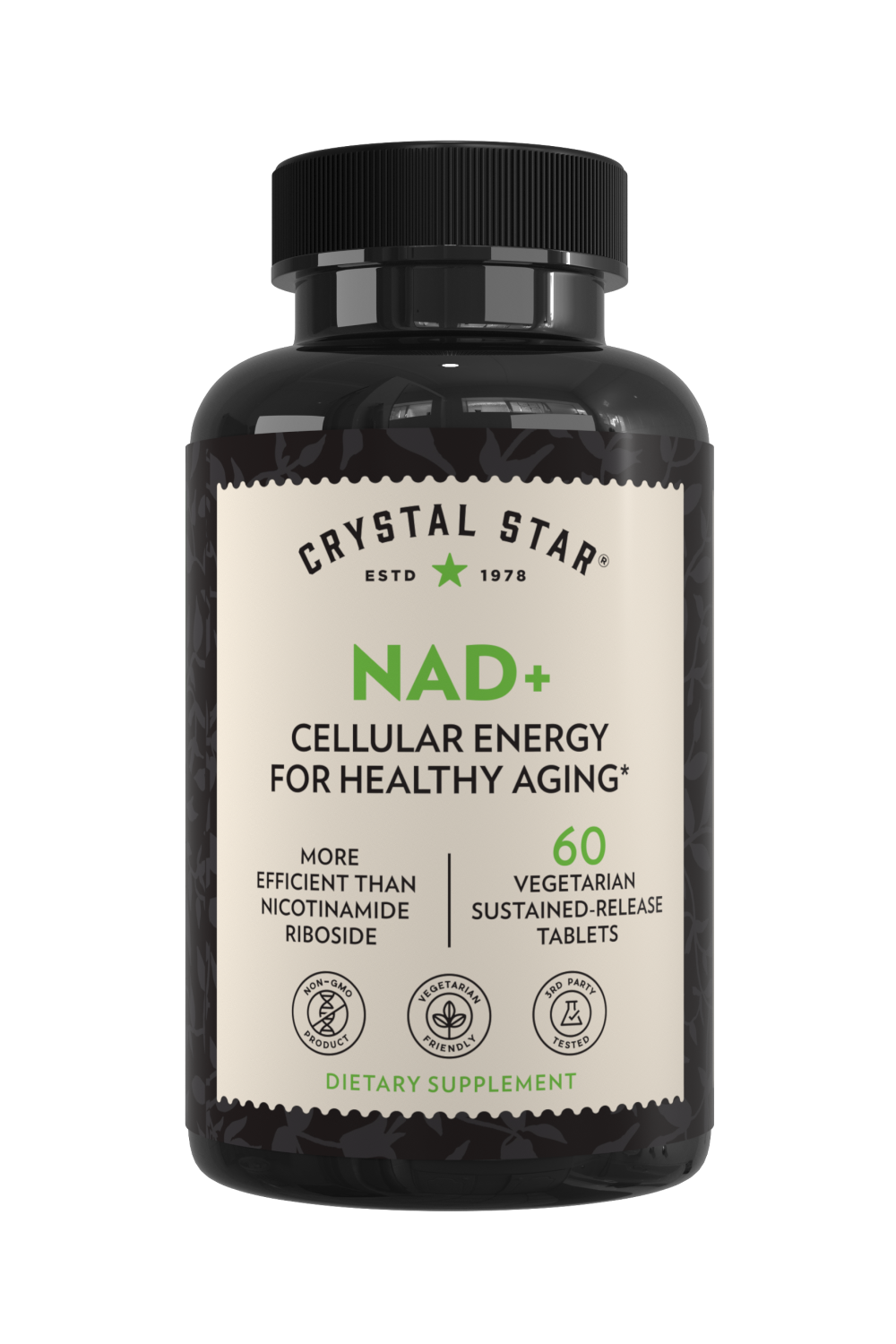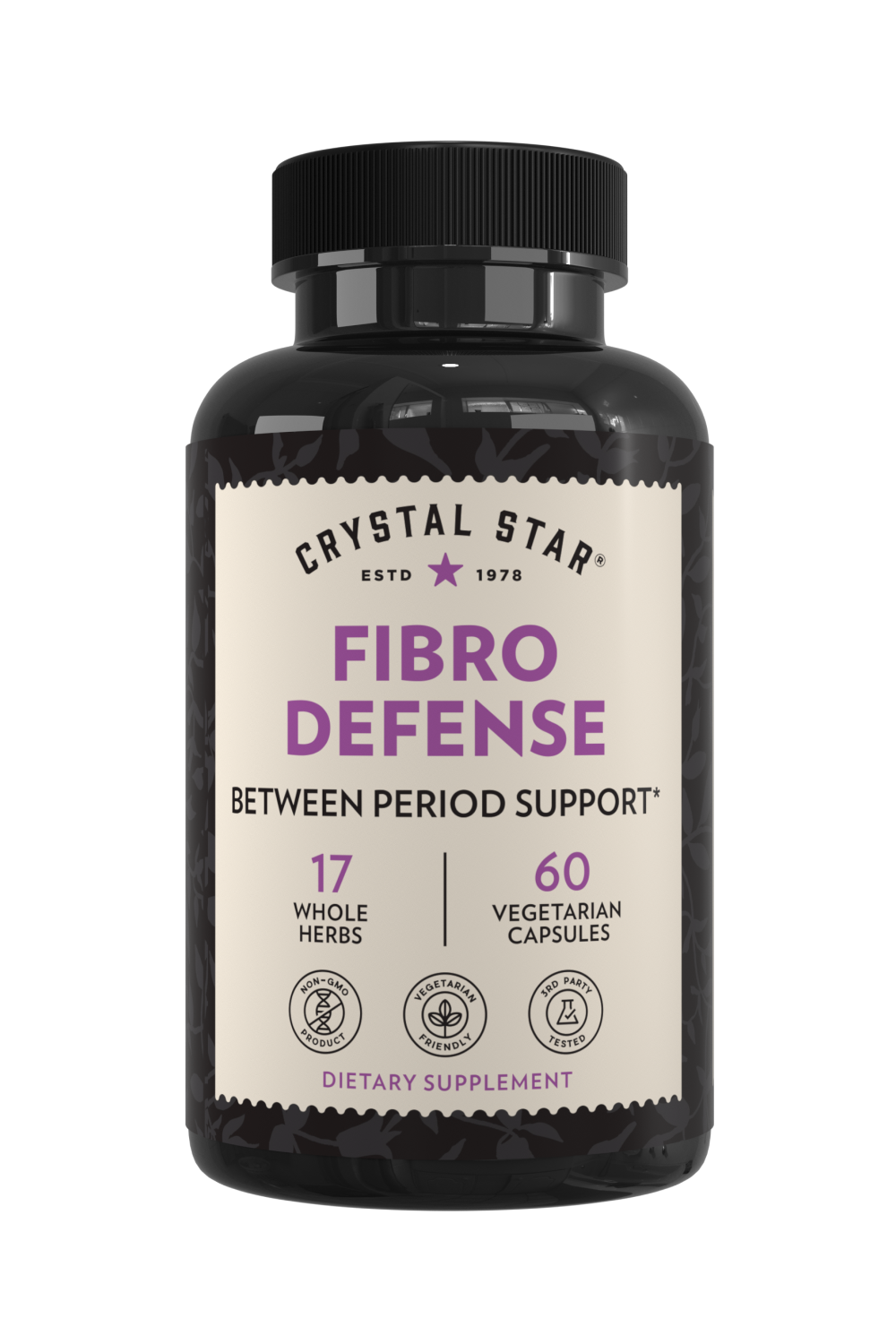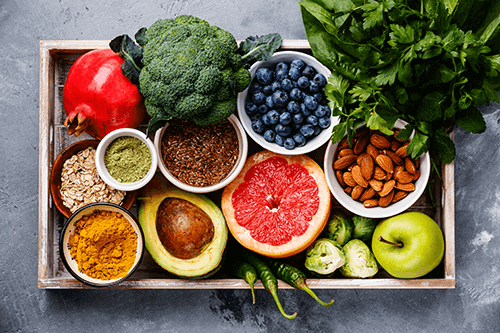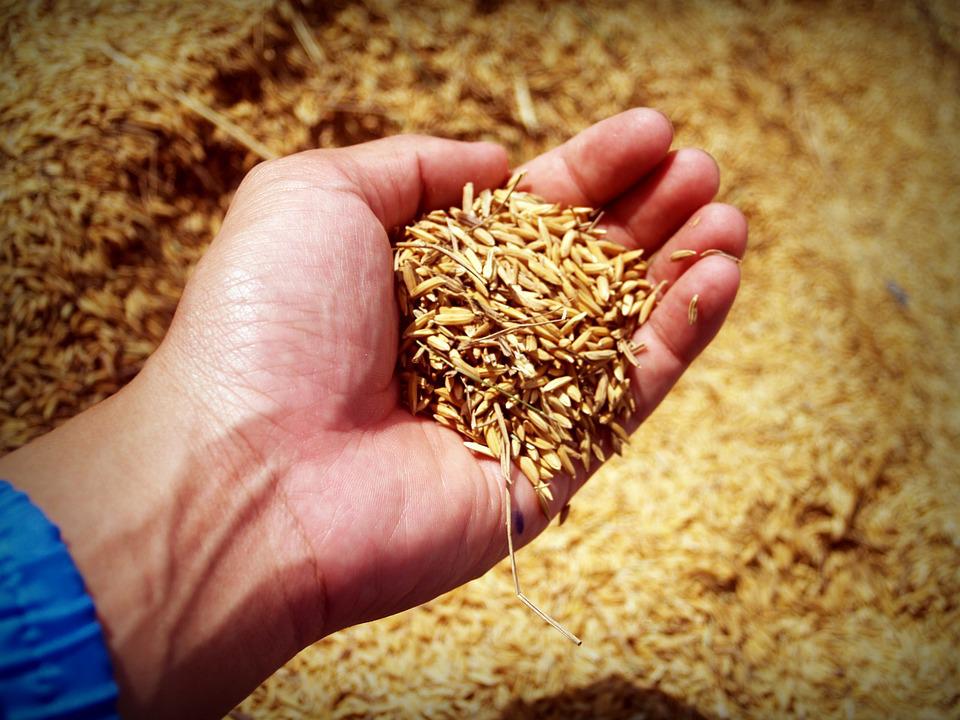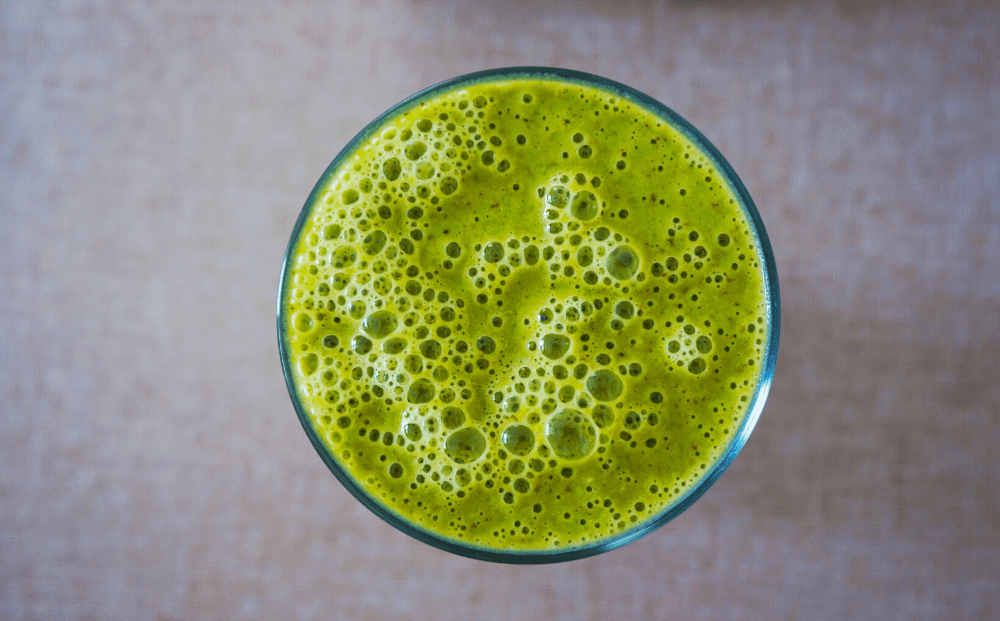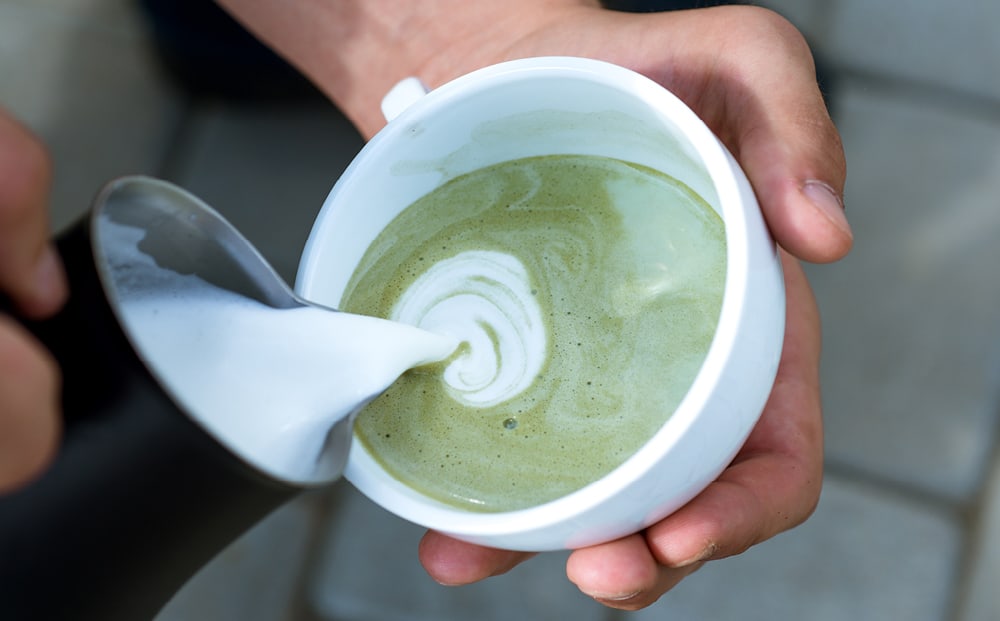
May 29, 2020
10 mins read
HOW EGCG MAKES YOU HEALTHIER, AND THE BEST WAYS TO TAKE IT
If you drink tea or have looked into its benefits, you might have stumbled across some of these benefits being attributed to something called EGCG.
EGCG is a plant compound that is generally most concentrated in green tea. It is also found in white, oolong, and black tea, as well as in small amounts in certain foods.
This specific polyphenol has been studied extensively and has been shown to be beneficial for various health conditions including cancer, Alzheimer’s, and depression. These positive effects of EGCG can be found in simple bags of green tea.
 EGCG (also known as epigallocatechin-3-gallate) is the main and most significant green tea polyphenol. The benefits associated with tea consumption are believed to be due to this polyphenolic compound and other related green tea catechins.[1]
[socialpug_tweet tweet="EGCG is a plant compound that is generally most concentrated in green tea." display_tweet=""]
The importance of EGCG to the body comes from the fact that this compound has been shown to regulate dozens of disease-specific molecular targets.[2] This means that it helps control molecules in the body that can contribute to the progression of disease.
EGCG is also a potent antioxidant that helps suppress inflammation by neutralizing free radicals. This is important because an increasing amount of evidence has shown that chronic inflammation causes and advances many common diseases.[3]
EGCG (also known as epigallocatechin-3-gallate) is the main and most significant green tea polyphenol. The benefits associated with tea consumption are believed to be due to this polyphenolic compound and other related green tea catechins.[1]
[socialpug_tweet tweet="EGCG is a plant compound that is generally most concentrated in green tea." display_tweet=""]
The importance of EGCG to the body comes from the fact that this compound has been shown to regulate dozens of disease-specific molecular targets.[2] This means that it helps control molecules in the body that can contribute to the progression of disease.
EGCG is also a potent antioxidant that helps suppress inflammation by neutralizing free radicals. This is important because an increasing amount of evidence has shown that chronic inflammation causes and advances many common diseases.[3]
 EGCG has been shown to have cancer-protective effects. It achieves this through its interaction with a protein called p53. This protein is a gene that essentially creates blueprints for the creation of proteins involved with the death of cancer cells in healthy individuals.[4]
[socialpug_tweet tweet="EGCG is a potent antioxidant that helps suppress inflammation by neutralizing free radicals. " display_tweet=""]
When this gene is mutated it becomes inactivated, and that protective mechanism against cancer can be impaired. Cancer itself knows how to turn this gene off so it can continue to grow. This weakens our own innate defense mechanism against cancer cells and gives them a more suitable environment to thrive.[5]
But p53 can be turned back on by many natural substances, including EGCG from green tea.[6] This allows the body to catch mutated cells and kill them before they progress and grow further.
EGCG has also been shown to starve cancer cells by inhibiting a growth factor that promotes the formation of new blood vessels.[7] This is important for cancer prevention, as cancer cells use the new blood vessels for nutrients to continue growing. By inhibiting this, you can take away the fuel that these cells need to survive.
EGCG has been shown to have cancer-protective effects. It achieves this through its interaction with a protein called p53. This protein is a gene that essentially creates blueprints for the creation of proteins involved with the death of cancer cells in healthy individuals.[4]
[socialpug_tweet tweet="EGCG is a potent antioxidant that helps suppress inflammation by neutralizing free radicals. " display_tweet=""]
When this gene is mutated it becomes inactivated, and that protective mechanism against cancer can be impaired. Cancer itself knows how to turn this gene off so it can continue to grow. This weakens our own innate defense mechanism against cancer cells and gives them a more suitable environment to thrive.[5]
But p53 can be turned back on by many natural substances, including EGCG from green tea.[6] This allows the body to catch mutated cells and kill them before they progress and grow further.
EGCG has also been shown to starve cancer cells by inhibiting a growth factor that promotes the formation of new blood vessels.[7] This is important for cancer prevention, as cancer cells use the new blood vessels for nutrients to continue growing. By inhibiting this, you can take away the fuel that these cells need to survive.
Blayne Andrews is a future functional medicine registered dietitian. Armed with a passion for helping people claim bodily autonomy and take their health into their own hands, Blayne hopes to teach people the evidence-based science to alternative care and a root-cause approach to wellness. [1] https://www.ncbi.nlm.nih.gov/pmc/articles/PMC3220617/ [2] https://www.ncbi.nlm.nih.gov/pmc/articles/PMC2903211/ [3] https://www.ncbi.nlm.nih.gov/pmc/articles/PMC3492709/ [4] https://www.ncbi.nlm.nih.gov/pmc/articles/PMC3756401/ [5] https://www.ncbi.nlm.nih.gov/pmc/articles/PMC2773645/ [6] https://www.ncbi.nlm.nih.gov/pubmed/22552582 [7] https://www.ncbi.nlm.nih.gov/pmc/articles/PMC3098399/ [8] https://www.alz.org/alzheimers-dementia/facts-figures [9] https://www.ncbi.nlm.nih.gov/pmc/articles/PMC5891833/ [10] https://www.ncbi.nlm.nih.gov/pubmed/20061647 [11] https://www.ncbi.nlm.nih.gov/pubmed/30218560 [12] https://www.ncbi.nlm.nih.gov/pubmed/27634207 [13] https://www.ncbi.nlm.nih.gov/pmc/articles/PMC3819905/ [14] https://www.ncbi.nlm.nih.gov/pubmed/14518774 [15] https://data.nal.usda.gov/system/files/Flav3.2.pdf [16] https://efsa.onlinelibrary.wiley.com/doi/pdf/10.2903/j.efsa.2018.5239 [17] https://www.sciencedirect.com/science/article/pii/S0273230018300928 [18] https://www.mayoclinic.org/healthy-lifestyle/nutrition-and-healthy-eating/in-depth/caffeine/art-20045678
What is EGCG?
 EGCG (also known as epigallocatechin-3-gallate) is the main and most significant green tea polyphenol. The benefits associated with tea consumption are believed to be due to this polyphenolic compound and other related green tea catechins.[1]
[socialpug_tweet tweet="EGCG is a plant compound that is generally most concentrated in green tea." display_tweet=""]
The importance of EGCG to the body comes from the fact that this compound has been shown to regulate dozens of disease-specific molecular targets.[2] This means that it helps control molecules in the body that can contribute to the progression of disease.
EGCG is also a potent antioxidant that helps suppress inflammation by neutralizing free radicals. This is important because an increasing amount of evidence has shown that chronic inflammation causes and advances many common diseases.[3]
EGCG (also known as epigallocatechin-3-gallate) is the main and most significant green tea polyphenol. The benefits associated with tea consumption are believed to be due to this polyphenolic compound and other related green tea catechins.[1]
[socialpug_tweet tweet="EGCG is a plant compound that is generally most concentrated in green tea." display_tweet=""]
The importance of EGCG to the body comes from the fact that this compound has been shown to regulate dozens of disease-specific molecular targets.[2] This means that it helps control molecules in the body that can contribute to the progression of disease.
EGCG is also a potent antioxidant that helps suppress inflammation by neutralizing free radicals. This is important because an increasing amount of evidence has shown that chronic inflammation causes and advances many common diseases.[3]
Can EGCG help protect against cancer?
 EGCG has been shown to have cancer-protective effects. It achieves this through its interaction with a protein called p53. This protein is a gene that essentially creates blueprints for the creation of proteins involved with the death of cancer cells in healthy individuals.[4]
[socialpug_tweet tweet="EGCG is a potent antioxidant that helps suppress inflammation by neutralizing free radicals. " display_tweet=""]
When this gene is mutated it becomes inactivated, and that protective mechanism against cancer can be impaired. Cancer itself knows how to turn this gene off so it can continue to grow. This weakens our own innate defense mechanism against cancer cells and gives them a more suitable environment to thrive.[5]
But p53 can be turned back on by many natural substances, including EGCG from green tea.[6] This allows the body to catch mutated cells and kill them before they progress and grow further.
EGCG has also been shown to starve cancer cells by inhibiting a growth factor that promotes the formation of new blood vessels.[7] This is important for cancer prevention, as cancer cells use the new blood vessels for nutrients to continue growing. By inhibiting this, you can take away the fuel that these cells need to survive.
EGCG has been shown to have cancer-protective effects. It achieves this through its interaction with a protein called p53. This protein is a gene that essentially creates blueprints for the creation of proteins involved with the death of cancer cells in healthy individuals.[4]
[socialpug_tweet tweet="EGCG is a potent antioxidant that helps suppress inflammation by neutralizing free radicals. " display_tweet=""]
When this gene is mutated it becomes inactivated, and that protective mechanism against cancer can be impaired. Cancer itself knows how to turn this gene off so it can continue to grow. This weakens our own innate defense mechanism against cancer cells and gives them a more suitable environment to thrive.[5]
But p53 can be turned back on by many natural substances, including EGCG from green tea.[6] This allows the body to catch mutated cells and kill them before they progress and grow further.
EGCG has also been shown to starve cancer cells by inhibiting a growth factor that promotes the formation of new blood vessels.[7] This is important for cancer prevention, as cancer cells use the new blood vessels for nutrients to continue growing. By inhibiting this, you can take away the fuel that these cells need to survive.
Can EGCG support brain health?
Yes, another benefit of EGCG is its ability to help support brain health. Brain health is imperative to overall health. That’s because the brain is the control center for all organ functions. The amount of Americans living with Alzheimer’s disease is projected to grow to nearly 14 million people by 2050.[8] With neurodegenerative diseases like Alzheimer’s becoming more prevalent, taking preventative measures is key in keeping your brain healthy. One of these ways is through drinking green tea. EGCG has been shown to prevent the creation of harmful plaques, such as beta-amyloid plaques, a hallmark of Alzheimer’s disease.[9] [socialpug_tweet tweet="EGCG has been shown to prevent the creation of harmful plaques, such as beta-amyloid plaques, a hallmark of Alzheimer’s disease." display_tweet=""] Beta-amyloid is a piece of a protein found in the normal brain. When it clumps together and misfolds it can cause amyloid plaques. This disrupts communication between nerve cells and causes brain inflammation, which can lead to dementia and Alzheimer’s.[10]Can EGCG support mental health?
Getting adequate EGCG may also help support your mental health. There is a new scientific theory of depression being presented in recent years. We once thought depression was a disease typified by low serotonin (the “feel good” brain chemical). But researchers are starting to find that inflammation can play a role in mental health as well. This theory explains that inflammatory cytokines (a type of signaling molecule) can pass through the blood-brain barrier and cause symptoms of depression.[11] The blood-brain barrier is an important natural barrier that protects the brain from pathogens that could cause infection. EGCG has been shown to have an anti-inflammatory effect by decreasing inflammatory cytokine production.[12] It is theorized that this may decrease symptoms of depression.[13] [socialpug_tweet tweet="EGCG has been shown to have an anti-inflammatory effect by decreasing inflammatory cytokine production." display_tweet=""] It should be said that this information shouldn’t replace medical advice or medication for mental illnesses. These studies are still preliminary, but a start to a larger conversation. For more information on tea's mental health benefits, check out Can Drinking Tea Help PTSD Symptoms?Tips for boosting EGCG
Green tea is the best natural source of EGCG. Matcha is a particularly potent variety.[14] White tea and oolong tea are also strong sources. Black tea provides less EGCG than other tea varieties but more than most foods. EGCG is also found in smaller amounts in certain foods, including:[15] [socialpug_tweet tweet="Green tea is the best natural source of EGCG." display_tweet=""] Fruit: apples, blackberries, cranberries, raspberries, plums, peaches, avocadosPotential side effects
Green tea extracts and supplements are much more highly concentrated than traditionally brewed tea, and this extra dose of EGCG can be rough on your liver. One cup of green tea has anywhere between 50-100 mg of EGCG. Common EGCG supplements can contain 400-1200 mg of EGCG or more. [socialpug_tweet tweet="Drinking green tea is generally considered safe, but dietary supplements can contain much more EGCG than is found naturally in tea." display_tweet=""] How much EGCG is safe? One study showed that daily intakes equal to or above 800 mg of EGCG taken as supplements showed signs of biomarkers associated with liver damage.[16] Another study on the safety of green tea found safe intake levels for EGCG in solid supplement form to be 338 mg per day.[17] As for drinking tea, the study found a higher safe level. In brewed form, 704 mg EGCG per day was considered safe. Then again, 704 mg of EGCG means drinking seven to 14 cups of tea. That’s a heck of a lot of caffeine—up to 476mg if you’re drinking matcha, a bit over the 400m daily dose that the Mayo Clinic considers safe.[18] If you opt to go with a supplement, make sure you know how much caffeine you’ll be ingesting. And since EGCG does interfere with liver enzymes that break down medications, any supplementation should be brought to the attention of a healthcare professional prior to taking it.Conclusion
Most of the research shows that the therapeutic benefits of green tea can be attributed to the polyphenolic compound EGCG. EGCG affects the body by impacting specific molecules and compounds that are often at the root of cancer, brain health issues, and mental health issues. EGCG also plays a role in reducing inflammation, which in excess serves in advancing and causing many common diseases. Although EGCG can be found in small amounts through certain foods, tea has the most abundant amount, with green tea the best source of all. Taking an EGCG supplement is another option, but you should keep in mind that some studies have found negative side effects associated with taking too much. The bottom line on EGCG is that brewing a cup of your favorite tea—especially green, white, or oolong—may be your best bet to reaping all the wonderful benefits of this healthful polyphenol.Blayne Andrews is a future functional medicine registered dietitian. Armed with a passion for helping people claim bodily autonomy and take their health into their own hands, Blayne hopes to teach people the evidence-based science to alternative care and a root-cause approach to wellness. [1] https://www.ncbi.nlm.nih.gov/pmc/articles/PMC3220617/ [2] https://www.ncbi.nlm.nih.gov/pmc/articles/PMC2903211/ [3] https://www.ncbi.nlm.nih.gov/pmc/articles/PMC3492709/ [4] https://www.ncbi.nlm.nih.gov/pmc/articles/PMC3756401/ [5] https://www.ncbi.nlm.nih.gov/pmc/articles/PMC2773645/ [6] https://www.ncbi.nlm.nih.gov/pubmed/22552582 [7] https://www.ncbi.nlm.nih.gov/pmc/articles/PMC3098399/ [8] https://www.alz.org/alzheimers-dementia/facts-figures [9] https://www.ncbi.nlm.nih.gov/pmc/articles/PMC5891833/ [10] https://www.ncbi.nlm.nih.gov/pubmed/20061647 [11] https://www.ncbi.nlm.nih.gov/pubmed/30218560 [12] https://www.ncbi.nlm.nih.gov/pubmed/27634207 [13] https://www.ncbi.nlm.nih.gov/pmc/articles/PMC3819905/ [14] https://www.ncbi.nlm.nih.gov/pubmed/14518774 [15] https://data.nal.usda.gov/system/files/Flav3.2.pdf [16] https://efsa.onlinelibrary.wiley.com/doi/pdf/10.2903/j.efsa.2018.5239 [17] https://www.sciencedirect.com/science/article/pii/S0273230018300928 [18] https://www.mayoclinic.org/healthy-lifestyle/nutrition-and-healthy-eating/in-depth/caffeine/art-20045678

